Richard and Julie Lefever
About the Award
New for 2017, the RMS-AAPG has approved the creation of the annual Julie Lefever Memorial Award in recognition of those who have done an exceptional job at sharing geoscience knowledge with the science community and/or general public.
Past Winners
2024
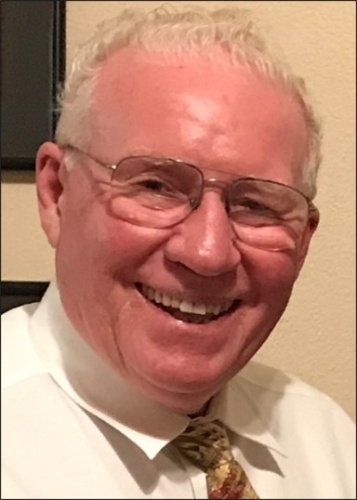 Dr. Robert (Bob) Lindsay has continued to share his knowledge of carbonate rocks and petroleum systems with numerous companies, geological surveys, and academic institutions since retiring from Saudi Aramco. Bob’s geoscience outreach includes the geoscience department at Brigham Young University (BYU), where he provides seminar talks on his work and career, participates in department-sponsored field trips, and attends alumni events. Additionally, Bob has taught a semester-long course centered upon characterization of San Andres fields on the north rim of the Delaware Basin, which includes lectures on carbonate systems, porosity classification and evolution, diagenesis, sequence stratigraphy, etc.
Dr. Robert (Bob) Lindsay has continued to share his knowledge of carbonate rocks and petroleum systems with numerous companies, geological surveys, and academic institutions since retiring from Saudi Aramco. Bob’s geoscience outreach includes the geoscience department at Brigham Young University (BYU), where he provides seminar talks on his work and career, participates in department-sponsored field trips, and attends alumni events. Additionally, Bob has taught a semester-long course centered upon characterization of San Andres fields on the north rim of the Delaware Basin, which includes lectures on carbonate systems, porosity classification and evolution, diagenesis, sequence stratigraphy, etc.
Bob has also been a regular presenter at core workshops examining the sedimentology and stratigraphy of the Williston Basin, where he spent the early years of his career. Bob has led multiple core sessions spanning various stratigraphic units of the Mississippian Madison Group of the Williston Basin, in particular the Mission Canyon section of the Little Knife Field. Additionally, he has taught one-day short courses on “how to log a core.”
Bob’s ability to explain various aspects of carbonate sedimentology and then show how it applies in an industrial, professional setting is simply second to none. Wherever Bob Lindsay goes, his enthusiasm for carbonate rocks and geology follows, and imprints upon those around him.
2023
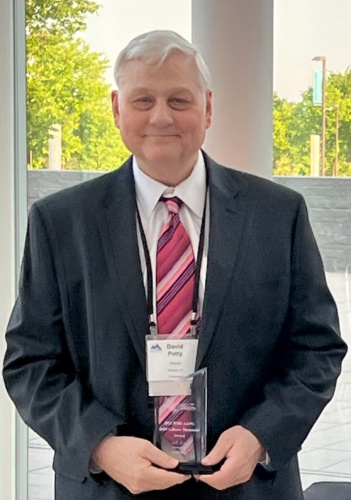 David M. Petty is the winner of the 2023 RMS-AAPG Julie LeFever Award for his exceptional work at sharing geoscience knowledge with the science community and/or general public. Despite facing multiple job transitions throughout his career, primarily due to mergers and acquisitions, David remained dedicated to studying the Williston Basin, specifically the Mississippian Madison Group. He consistently presented his geological research at regional and national AAPG events and published his work in esteemed peer-reviewed journals. Notably, David has recently volunteered to lead core workshop sessions on the Mississippian Madison Group at Williston Basin workshops. His extensive publications, presentations, and knowledge sharing through formal and informal interactions make him a truly exceptional geoscientist deserving of the Julie LeFever Memorial Award.
David M. Petty is the winner of the 2023 RMS-AAPG Julie LeFever Award for his exceptional work at sharing geoscience knowledge with the science community and/or general public. Despite facing multiple job transitions throughout his career, primarily due to mergers and acquisitions, David remained dedicated to studying the Williston Basin, specifically the Mississippian Madison Group. He consistently presented his geological research at regional and national AAPG events and published his work in esteemed peer-reviewed journals. Notably, David has recently volunteered to lead core workshop sessions on the Mississippian Madison Group at Williston Basin workshops. His extensive publications, presentations, and knowledge sharing through formal and informal interactions make him a truly exceptional geoscientist deserving of the Julie LeFever Memorial Award.
2022
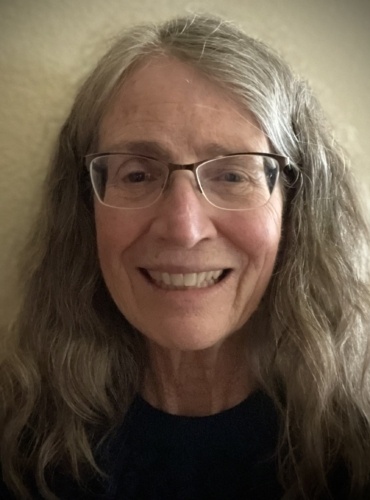 Donna Anderson embodies the spirit of Julie Lefever in the way she shares her love of geoscience with others. For many years Donna was a part-time research professor at Colorado School of Mines. In addition to research, Donna taught sedimentary geology classes and was an instructor for geology field camps for both petroleum engineers and geology majors. Additionally, she advised master student candidates from 2004-2011. Throughout her career Donna has been a huge supporter of RMAG, serving as president and on multiple committees. She has been a catalyst for RMAG’s Education Outreach Committee, whose mission is to provide fun and engaging educational opportunities in the geosciences for K-12 students and adults. This goal is fulfilled by engaging with the public in events such as Girl and Boy Scout Days at Dinosaur Ridge, Children’s Museum Earth Science Day, and Girls in Science at the Denver Museum of Nature and Science. Donna coordinates and participates in events like these, where she enthusiastically imparts her geologic knowledge to budding geologists of all ages. In 2021 Donna co-authored the book ‘Golden Rocks: The Geology and Mining History of Golden, Colorado,’ sharing captivating stories about her home community’s fascinating geology. Notably, she has generously made the volume available for free on the Colorado Geological Survey website. For Donna’s dedication in sharing her geologic world with others, we present her with the Julie Lefever Memorial award.
Donna Anderson embodies the spirit of Julie Lefever in the way she shares her love of geoscience with others. For many years Donna was a part-time research professor at Colorado School of Mines. In addition to research, Donna taught sedimentary geology classes and was an instructor for geology field camps for both petroleum engineers and geology majors. Additionally, she advised master student candidates from 2004-2011. Throughout her career Donna has been a huge supporter of RMAG, serving as president and on multiple committees. She has been a catalyst for RMAG’s Education Outreach Committee, whose mission is to provide fun and engaging educational opportunities in the geosciences for K-12 students and adults. This goal is fulfilled by engaging with the public in events such as Girl and Boy Scout Days at Dinosaur Ridge, Children’s Museum Earth Science Day, and Girls in Science at the Denver Museum of Nature and Science. Donna coordinates and participates in events like these, where she enthusiastically imparts her geologic knowledge to budding geologists of all ages. In 2021 Donna co-authored the book ‘Golden Rocks: The Geology and Mining History of Golden, Colorado,’ sharing captivating stories about her home community’s fascinating geology. Notably, she has generously made the volume available for free on the Colorado Geological Survey website. For Donna’s dedication in sharing her geologic world with others, we present her with the Julie Lefever Memorial award.
2021
Michael Hofmann got his Ph.D. from the University of Montana in Sedimentary Geology and went to work for Conoco Phillips in the Subsurface Technology Group. Even early in his career, he worked as a technical expert within Conoco Phillips, sharing his knowledge of sedimentary systems and stratigraphy across the company. While working at Conoco Phillips, he participated in new-hire training including leading classes and fieldtrips. In 2011 Michael returned to Montana as a Research Assistant/Associate Professor at the University of Montana. There Michael has advised numerous graduate students. He is an encouraging and patient advisor. Michael is an advisor to the university’s IBA Team and is also the coordinator of campus recruiting for petroleum corporations. In 2016, Michael ran a Spring Break field course for students in the Book Cliffs. In addition, Michael is an instructor for a month every summer at the South Dakota School of Mines and Technology Summer Field Camp. Michael has been a significant contributor to the technical geologic community, having published over 90 journal articles, extended abstracts and meeting abstracts. He has led courses and fieldtrips for Rocky Mountain geological societies, including a course on the Basics of Core Description at the 2017 AAPG RMS Meeting in Billings, MT. He has worked nearly every Rocky Mountain basin, from the Williston Basin to the San Juan Basin. Michael is the Co-Founder and CEO of AIM GeoAnalytics, a geological consulting and analytical services company, and Co-Founder of Cartalytics, a geospatial software company. In these companies he further shares his knowledge directly with the industry and expands that of others through his analytical work and reports, core workshops, lectures, and field trips. Within industry, as a teacher and advisor, as a technical professional – Michael has done an exceptional job at sharing geoscience knowledge within the science community in the Rocky Mountain Section.
2020
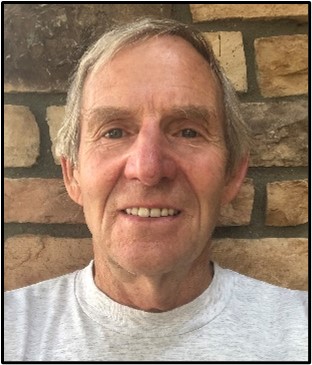 Gus Gustason is always the first to volunteer his time and efforts to teaching others his vast knowledge of the geosciences. He never hesitates to teach anyone and everyone what he knows about geology and loves taking people into the field to see geology in action. Gus started his career in the oil and gas industry in 1982 as a geotechnician for Research Planning Institute (RPI) in Boulder, Colorado. He became active in local geoscience organizations in the late 1990s. Since then, he has led or co-led more than 20 field trips and core workshops sponsored by regional and national societies, including the Society for Sedimentary Geology (SEPM), American Association of Petroleum Geologists (AAPG), Rocky Mountain Association of Geologists (RMAG), Wyoming Geological Association (WGA), Geological Society of America (GSA). Topics included sedimentology, geochemistry, stratigraphic architecture, reservoir characteristics, and sequence stratigraphy of Cretaceous fluvial and marine rocks. He has shared his ideas by giving numerous talks at local society luncheons and more than 50 talks or posters (abstracts) at regional and national meetings/conventions. Most presentations, field trips, and core workshops were offered when plays were newly emerging or development plans were evolving (e.g., Williams Fork, Sussex, Turner, Codell, Niobrara, and Mancos), thus providing the geoscience community with background, insights/ideas, modern analogs, and discussions that could be applied immediately. He has worked with numerous graduate students with thesis topics on “anything Cretaceous” in the Rockies
Gus Gustason is always the first to volunteer his time and efforts to teaching others his vast knowledge of the geosciences. He never hesitates to teach anyone and everyone what he knows about geology and loves taking people into the field to see geology in action. Gus started his career in the oil and gas industry in 1982 as a geotechnician for Research Planning Institute (RPI) in Boulder, Colorado. He became active in local geoscience organizations in the late 1990s. Since then, he has led or co-led more than 20 field trips and core workshops sponsored by regional and national societies, including the Society for Sedimentary Geology (SEPM), American Association of Petroleum Geologists (AAPG), Rocky Mountain Association of Geologists (RMAG), Wyoming Geological Association (WGA), Geological Society of America (GSA). Topics included sedimentology, geochemistry, stratigraphic architecture, reservoir characteristics, and sequence stratigraphy of Cretaceous fluvial and marine rocks. He has shared his ideas by giving numerous talks at local society luncheons and more than 50 talks or posters (abstracts) at regional and national meetings/conventions. Most presentations, field trips, and core workshops were offered when plays were newly emerging or development plans were evolving (e.g., Williams Fork, Sussex, Turner, Codell, Niobrara, and Mancos), thus providing the geoscience community with background, insights/ideas, modern analogs, and discussions that could be applied immediately. He has worked with numerous graduate students with thesis topics on “anything Cretaceous” in the Rockies
2019
Mary Carr has been involved with PTTC, the Petroleum Technology Transfer Council, since 2006. First she served as Director of the Rocky Mountain region, and since 2013 as Executive Director of the national organization. PTTC is an educational non-profit organization that provides a forum for technology transfer and best-practices for independent oil and gas producers across the U.S. Since 2006, Mary has been responsible for organizing 210 1- to 3-day workshops with ranging topics including: sequence stratigraphy, hydraulic fracturing; training for widely used software in the independent community like Petra, Kingdom, and GeoGraphix; and petrophysical applications ranging from basics to specialized topics. Mary has developed the concepts and contacts for short course instructors, arranged the venues, and coordinated the logistics, as well as having served as short course chairperson for several meetings, including the recent ACE held in Denver in 2015. Mary also conducted the Futures in Energy program over several summers that exposed a few hundred junior and senior high-school students to the energy industry in a one-week field-based program. Over the years the students visited several oil and gas operations including Pinedale field in the Green River Basin of Wyoming and Wattenberg Field in the DJ Basin of Colorado. Mary Carr has also been the hidden face behind a large public outreach for education in the Rocky Mountain region. The Julie LeFever Memorial Award is a fitting recognition of Mary’s long-time achievements in this capacity.
2018
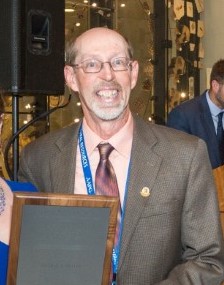 Rich Bottjer is a great mentor and a constant geologic resource. Many folks refer to Rich as the encyclopedia of geology based on his experience with Rockies basins and his passion for the more academic side of the science. Through his time at Cirque Resources, Southwestern, and Forrest, Rich had the opportunity to study and collect data on many important reservoirs across the Rockies and he was never shy to share or trade data and discuss and present his ideas. In the last several years Rich has contributed to several RMAG core workshops covering the DJ and Powder River Basins. Rich has presented numerous times at RMS AAPG and AAPG ACE, RMAG, and Explorer’s Club. Rich is well known by many in the Rocky Mountain Region for his work on the Bakken, Heath, Codell, Parkman, Turner, Frontier, Shannon, and Sussex formations. Rich has always been a very good rock person and has the ability to give very good presentations in clear and thorough manner without losing sight of the big picture. Rich’s proven effort to consistently share ideas and information make him very deserving to receive the Julie LeFever Memorial Award.
Rich Bottjer is a great mentor and a constant geologic resource. Many folks refer to Rich as the encyclopedia of geology based on his experience with Rockies basins and his passion for the more academic side of the science. Through his time at Cirque Resources, Southwestern, and Forrest, Rich had the opportunity to study and collect data on many important reservoirs across the Rockies and he was never shy to share or trade data and discuss and present his ideas. In the last several years Rich has contributed to several RMAG core workshops covering the DJ and Powder River Basins. Rich has presented numerous times at RMS AAPG and AAPG ACE, RMAG, and Explorer’s Club. Rich is well known by many in the Rocky Mountain Region for his work on the Bakken, Heath, Codell, Parkman, Turner, Frontier, Shannon, and Sussex formations. Rich has always been a very good rock person and has the ability to give very good presentations in clear and thorough manner without losing sight of the big picture. Rich’s proven effort to consistently share ideas and information make him very deserving to receive the Julie LeFever Memorial Award.
2017
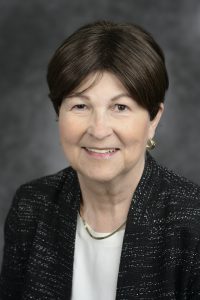 The Inaugural award was granted to Richard and Julie for their countless hours they put in over the years helping spread geoscience knowledge through research and teaching. Through their combined efforts, countless people have benefited from their selfless willingness to teach others.
The Inaugural award was granted to Richard and Julie for their countless hours they put in over the years helping spread geoscience knowledge through research and teaching. Through their combined efforts, countless people have benefited from their selfless willingness to teach others.
